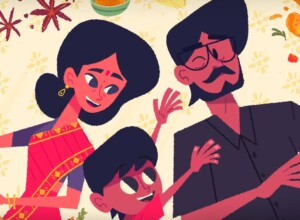Nintendo have announced that they are not hosting a glitzy E3 press conference this year.
Instead, they will host two smaller events for the press and publishing community and use a Nintendo Direct broadcast to reveal new software to the wider gaming audience. It’s a brave approach to an event that typically thrives on bluster, spectacle and bravado.
Over the last few years Nintendo’s communication strategy has evolved, eschewing the usual channels to talk directly and frankly to its consumer base. The Iwata Asks articles were the first strand, offering a controlled but nonetheless fascinating insight into Nintendo’s development processes. These were followed by Nintendo Direct, a series of web videos ostensibly designed to announce new software, but with a by-product of making Nintendo’s senior team into cult personalities.
Nintendo Direct has been a huge success, not only because of the game announcements, but also because of their honesty, tone and humour. Iwata and his team are funny, self-deprecating and provoke empathy with the audience. They poke fun at themselves in an utterly charming way and the videos sum up “Nintendo” in a way that an E3 press conference never has.
So the decision makes sense, this year at least. With no hardware to plug Nintendo has to concentrate on bolstering the Wii U’s anaemic software library. They can do this just as effectively with a 45 minute video as they can with a huge journo filled venue.
Rather than be engaged in a 3 way bout of one-upmanship with Sony and Microsoft, they have neatly side-stepped it. It’s further proof that Nintendo intends to continue on its own path and let Sony and Microsoft wage their own next-gen war.
It’s also an admission that Nintendo’s traditional E3 presentations were not hitting the mark. The assembled audience in recent years has not really represented Nintendo’s market, resulting in a palpable air of dissatisfaction from the core gaming media. Of course the danger is that they will just be preaching to the converted, Nintendo’s fan base is rabid and passionate, but it’s not the mainstream. The decision will not matter hugely to the wider audience but Nintendo would do well not to forget them long-term.
So, yeah, a brave move, but if executed correctly it’s a move that will suit Nintendo, its fans and probably the media too.







Comments are closed.